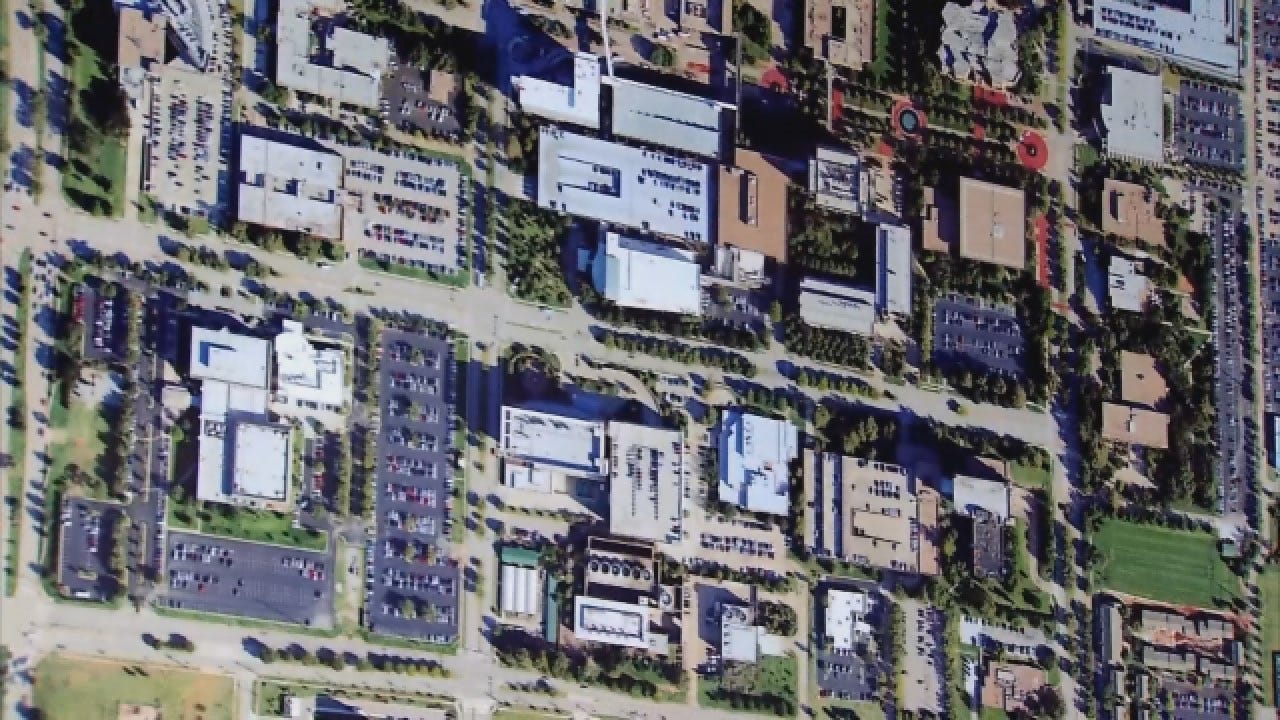OKC Moving Forward With Innovation District
<p>Oklahoma City is home to several thriving districts, and a new one is on the horizon. Located just east of the downtown area, this future hub for innovation is expected to offer more than just a place to work. </p>Friday, July 14th 2017, 6:30 pm
Oklahoma City is home to several thriving districts, and a new one is on the horizon. Located just east of the downtown area, this future hub for innovation is expected to offer more than just a place to work.
"It's a new economy in today's world, a new high tech economy," said Terry Taylor, with the Oklahoma Health Center Foundation.
Oklahoma wants to capture that economy and Oklahoma City is doing that through its emerging Innovation District.
"Here we are, right adjacent to downtown so we're lucky to build upon that geography," Taylor said.
The district encompasses 1.3 square miles east of downtown. Within its boundaries - lies an epicenter of health sciences and bio tech research facilities and tech startups, along with Automobile Alley.
"We wanted a place where companies, researchers, universities will all be near each other so they will have to bump into each other literally or figuratively and new ideas and jobs and opportunities will come out of that," said Kurt Foreman, Executive Vice President with the OKC Chamber of Commerce.
With the addition of the GE global research center in 2016, district leaders are seeing the focus already shifting.
"Oklahoma really is becoming the silicon valley of energy innovation," said Mike Ming, Vice President - Executive Liaison, Baker Hughes, a GE Company.
Inside the new research facility, GE is bringing the oilfield into the lab with two test drills on site.
"We want to be end to end in the spectrum of how to make operations better, cheaper, faster, cleaner, safer, more efficient," Ming said.
Employees also tests drones to detect emissions at oilfields. But it doesn't stop there. Ming says his workforce of highly educated scientists and engineers are constantly innovating. And being within the Innovation District is just an added benefit.
"It puts them in an ecosystem where they want to live where they want to work, and where they can collaborate with other industries where we can draw on their expertise to solve this industry's toughest challenges," said Ming.
The district won't just be a cluster of different industries but a cluster of people - working and living - in more of a 24/7 type of environment. It's a notion that has sparked interest in other cities across the state. City leaders in Broken Arrow are working to build an innovation district there to attract high tech jobs.
"The reality today is people just don't want to drive to an office building and then get back in their car and go home at night, they want to be in a neighborhood," said Foreman.
Incorporating Automobile Alley will give the district that community feel but district leaders hope to add even more.
"There'll be housing, there'll be more buildings, and there'll be more restaurants and places, things to do," said Foreman.
The plans also call for more sidewalks to make it more walkable and bicycle friendly as well as holding more events in the existing green spaces. And the 10th Street bridge that brings the two sections of the district together could one day have a new look.
"It could be a park," said Taylor. "Along 10th Street you could potentially build buildings on that bridge."
It would be similar to Klyde Warren Park in Dallas. The city created an urban green space over a freeway to serve as a central gathering space for downtown workers and visitors.
"There's questions to it, engineering questions but that can all be addressed, that's a good question to have for our area and what happens in the next 10 years if that can be accomplished it would be great," Taylor said.
More Like This
July 14th, 2017
November 13th, 2024
October 28th, 2024
October 17th, 2024
Top Headlines
December 3rd, 2024
December 3rd, 2024
December 3rd, 2024










